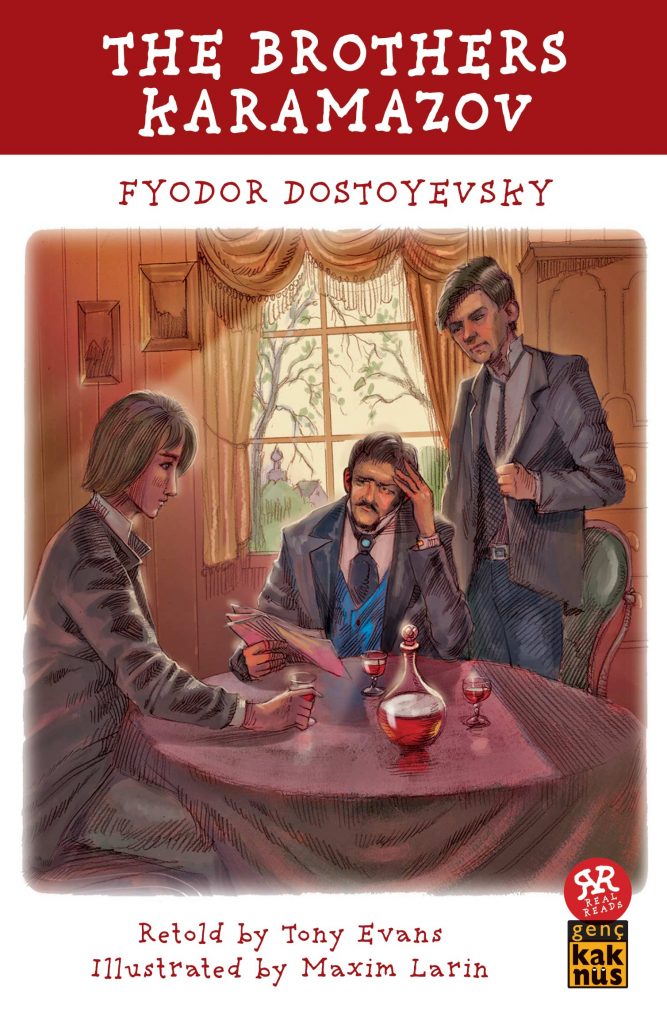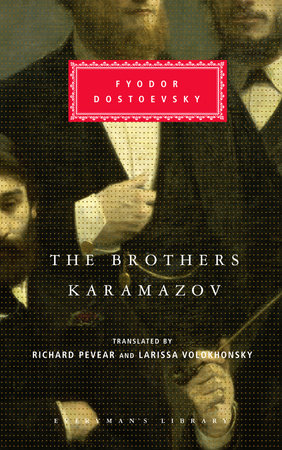Novel Analysis "The Brothers Karamazov" written by Fyodor Dostoyevsky
76

"The Brothers Karamazov" by Fyodor Dostoyevsky is a monumental novel that delves into complex themes of morality, spirituality, and the human condition. Here's a comprehensive analysis of the key elements:
1) Family Dynamics:
- At the heart of the novel is the exploration of the Karamazov family and its dysfunctional dynamics. The three brothers (Dmitri, Ivan, and Alexei) represent different aspects of human nature and embody various philosophical perspectives.
2) Morality and Faith:
- The novel grapples with questions of morality, ethics, and the existence of God. Each brother engages in a personal struggle with faith and morality, reflecting Dostoyevsky's own profound philosophical inquiries.
3) The Grand Inquisitor:
- Ivan's poem "The Grand Inquisitor" is a central component of the novel. It presents a parable within the story, exploring the conflict between freedom and security, and raises profound questions about the nature of God, human suffering, and the role of organized religion.

4) Father Zosima's Teachings:
- Father Zosima, the spiritual guide in the novel, offers a contrasting perspective to the skeptical Ivan. Zosima's teachings emphasize love, compassion, and the interconnectedness of all humanity. His philosophy acts as a counterbalance to the intellectual and nihilistic viewpoints presented by other characters.

5) Themes of Patricide and Guilt:
- The novel's plot revolves around the murder of Fyodor Pavlovich Karamazov, and the subsequent trial involving his son Dmitri. Themes of patricide and guilt permeate the narrative, exploring the psychological and moral consequences of such actions.

6) Love and Redemption:
- Love, in its various forms, plays a crucial role in the novel. The characters struggle with love for family, romantic love, and divine love. The theme of redemption is woven through the narrative, offering hope for characters who seek spiritual renewal.

7) Symbolism and Allegory:
- Dostoyevsky employs rich symbolism and allegory throughout the novel. Symbols such as the onion (representing layers of the human soul) and the idea of the "Russian soul" contribute to the novel's depth and complexity.

8) Exploration of Russian Society:
- The novel also serves as a social commentary on 19th-century Russian society. It reflects the cultural and political landscape of the time, addressing issues such as class disparity, moral decay, and the clash between Western rationalism and traditional Russian spirituality.

9) Complex Characters:
- Each character in "The Brothers Karamazov" is multi-dimensional, with unique personalities and motivations. Their interactions and internal struggles contribute to the novel's rich tapestry of human experience.
In summary, "The Brothers Karamazov" is a profound exploration of morality, faith, and the human soul. Dostoyevsky weaves a complex narrative that challenges readers to contemplate existential and philosophical questions, making it a timeless masterpiece in world literature.
I recommend you to listen ''The Brothers Karamazov'' audiobook for those who don't have time to read;
The Brothers Karamazov by Fyodor Dostoyevsky Audiobook;
References;
- Piretto, Gian Piero (1986). "Staraia Russa and Petersburg; Provincial Realities and Metropolitan Reminiscences in The Brothers Karamazov". Dostoevsky Studies. 7. Archived from the original on 10 November 2013.
- Lantz (2004), pp. 240–2.
- Frank, Joseph (2003) [2002]. Dostoevsky: The Mantle of the Prophet, 1871–1881. Princeton University Press. pp. 383–4. ISBN 978-0-691-11569-6.
- Figes, Orlando (2002). Natasha's Dance, A Cultural History of Russia. New York City: Picador. p. 325. ISBN 9780312421953.
Thank you for reading and please give me a feedback!
You can complete great comment tasks at here. #thebrotherskaramazov #fyodordostoyevski #novel #bookreview #audiobook #reading #writer











































